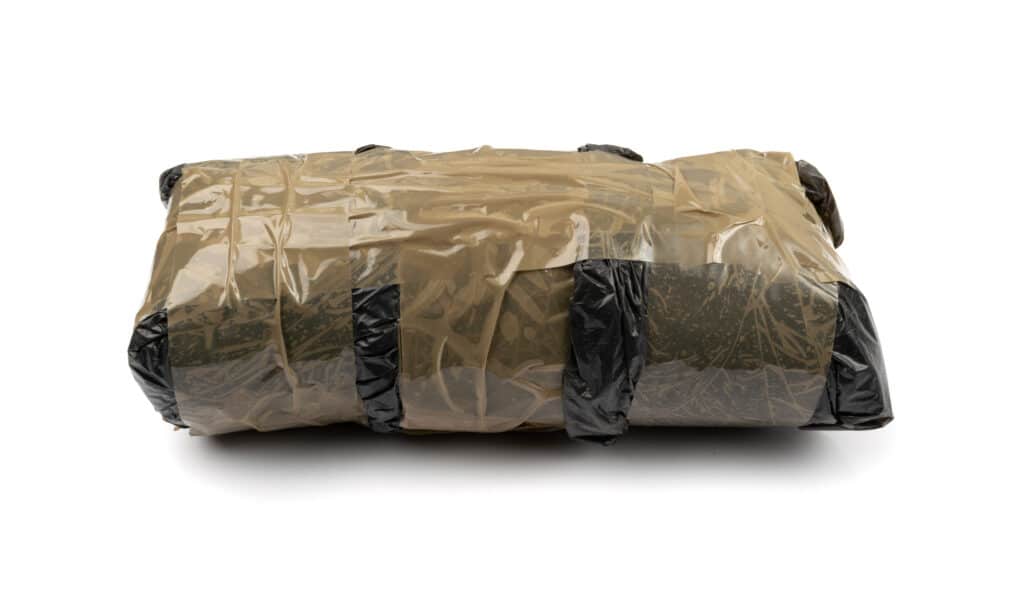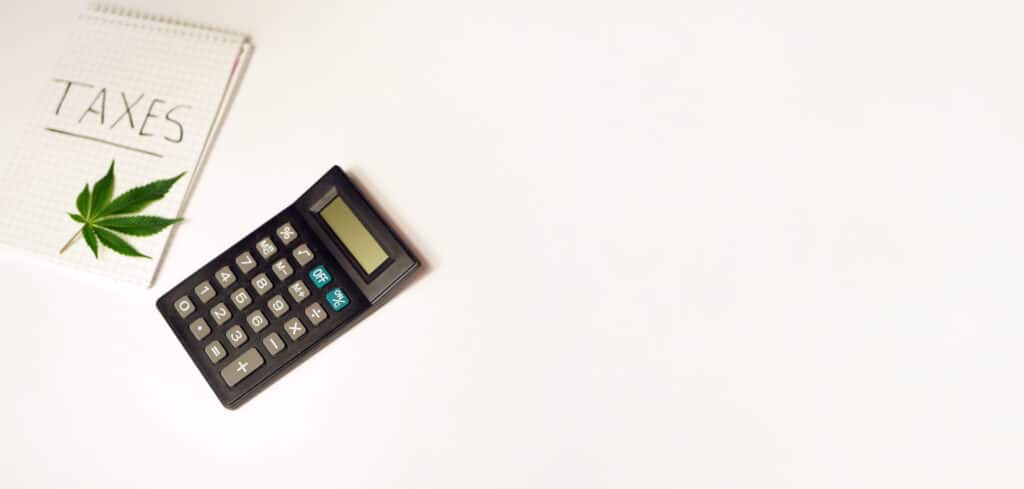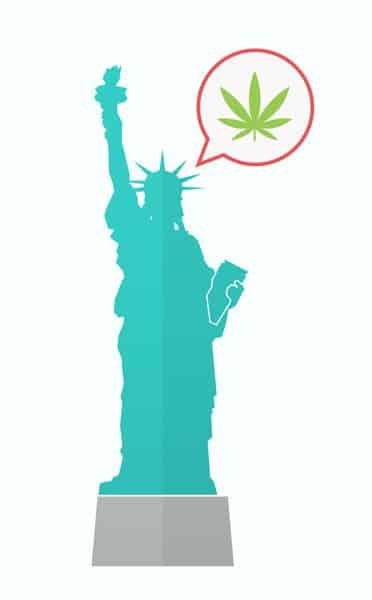One of the biggest issues for burgeoning cannabis industries, is the ever-present black market. Recently, New York implemented a new law meant to help law enforcement go after unlicensed black market cannabis sellers. Is it working? And is there a better way of dealing with the black market issue?
*This article is the opinion of the writer concerning recent legal updates in New York. to fight the cannabis black market.
What did New York do to minimize black market?
On May 3rd of this year, Governor Kathy Hochul approved new budget legislation for the 2024 fiscal year; which also raises the penalties for illicit cannabis operations in the state of New York. The provision gives the Office of Cannabis Management and the Department of Taxation and Finance, a higher level of power to deal with illicit vendors. These entities can identify and close down stores involved in illegal sales, as a way for New York to combat the ever-present black market.
The new measure is meant to lower the sale of illicit products, as well as gifting scenarios; from any unlicensed vendor (storefronts or trucks). The Office of Cannabis Management can now dole out daily fines in the amount of $10,000 – $20,000 to these providers. As per the legislation, its now specifically a crime to sell any kind of cannabis product without correct licensing.
In order to make illicit enterprises pay up, New York must find them first. The legislation also allows greater power for inspections by the Office of Cannabis Management. Such regulatory inspections can be conducted on any business selling any kind of cannabis product; including those that give cannabis away as gifts/exchanges (sometimes dubbed ‘sticker stores.’) The office can seize the untested cannabis from any business without a license; and then get court orders, closing orders, and remove any commercial renters who sell unlicensed cannabis products.
In tandem, the Department of Taxation and Finance can conduct inspections of enterprises in the cannabis sales arena; to define if such companies have paid all taxes. The agency can charge civil penalties if taxes have not been paid. The law additionally specifies a new tax fraud crime. Any business that knowingly fails to collect or pay taxes related to cannabis products, or which knowingly sells cannabis for which taxes haven’t been paid; is eligible to be charged with this crime.
At the time, Hochul stated, “As New York State continues to roll out a nation-leading model to establish its cannabis industry, these critical enforcement measures will protect New Yorkers from illicit, unregulated sales. Unlicensed dispensaries violate our laws, put public health at risk, and undermine the legal cannabis market. With these enforcement tools, we’re paving the way for safer products, reinvestment in communities that endured years of disproportionate enforcement, and greater opportunities for New Yorkers.”
How is New York doing with new law to limit black market?
It’s understood that governments don’t like black markets. It goes without saying. A black market is not under the regulation of a government, and that has several implications. It means government safety laws aren’t applicable. It means governments can’t institute changes within the market. And maybe most importantly, it means governments can’t collect taxes from sales or worker incomes. It makes sense that they generally want to limit these markets; and that’s why New York just instituted this policy. How is it working out thus far?
In the first two weeks of the law’s official life, June 7th-22nd, (when Hochul made the announcement), New York conducted 33 inspections of storefronts, seized 1,000 pounds of illicit product, and identified and issued 31 Notices of Violation; all from New York City, Binghamton, and Ithaca. The estimated street value of the seized product is $11 million.
Said Hochul of the state of things, “Under new powers that I fought for in this year’s State budget, we can now conduct enforcement against businesses illegally selling cannabis, and I’m proud to report that in just the first three weeks of our efforts, we’ve seized nearly $11 million worth of illicit products off the streets. These unlicensed businesses violate our laws, put public health at risk, and undermine the legal cannabis market, and with the powerful new tools in our toolbelt we’re sending a clear and strong message: if you sell illegal cannabis in New York, you will be caught and you will be stopped.”
How likely is this to actually work?
A press statement like what Hochul gave, especially so early after the implementation of a law, is questionable at best. It’s to keep people onboard, to make it look like progress, to back up that the law is/was a good idea. Only problem? Both the federal government, as well as every state, has had laws and initiatives to get rid of marijuana for almost a hundred years. And it’s still the most popular drug in the country (with the exception of alcohol, which enjoys legal sales throughout the US).

Is this the big turnaround? The time when a government finally gets control of the big ole black market? Is this the beginning of the end for illicit providers? Probably not. Let’s remember, New York has had a functional cannabis sales market for only ½ year; the legalization itself is as new as two years old. On the other hand, the black market has been in existence since prohibition began.
In a PBS article from March, its quoted that conservative estimates put unlicensed shops at 1,400 in just NYC. And this while only 60 licenses were issued throughout the entire state. The reality of this action, is that its mostly for optics. New York has very little chance of curbing the black market in a meaningful way like this. Remember, we’ve heard news stories of huge marijuana busts for decades…and yet they were just tiny drops in a big ole bucket. No game-changers. Here’s one from 2019, when New York cracked down on illegal CBD edibles. Should we talk about progress on that?
Perhaps the better question is, why fund this campaign? The total cost isn’t provided, but the article mentions “$5M for an additional 37 OCM staff to carry out enforcement.” Perhaps that’s the total cost of the program, perhaps just a part. It’s not a huge amount in the grand scheme, but its still $5 million in taxpayer money, for something that never worked before. In her statement, Hochul specifically said the law was to help “reinvestment in communities that endured years of disproportionate enforcement”… but isn’t this just another example? $20,000 a day when no one’s getting hurt?
According to the official documentation, this new law is meant to make a “significant stride toward cracking down on unlawful cannabis operations that jeopardize public safety, consumer well-being, and the integrity of New York State’s legal cannabis market.” In terms of the first two points, I ask the question: ‘what public safety and consumer well-being issues?’
Illegal dispensaries and products are more widespread than legal ones; and people aren’t having issues; nor have there ever been any substantial issues related to weed black markets in the past. Remember, before a few years ago, that’s all we had. Whatever minor issues, pale so extremely in comparison to the damage of drugs like synthetic opioids; that the idea of putting any taxpayer money into this, while the legal manufacture, prescription, and sale of opioids continues; shows a huge disconnect in logical thinking by our government representatives, when it comes to protecting our health and well being.
It’s, of course, the last part that holds the real answer. The part about protecting New York’s legal cannabis market. The one that gets taxed substantially by the New York government. If you buy illicit products, the government doesn’t get to apply its hefty and unnecessary sin taxes; and this diminishes government revenue on cannabis products. But the thing is, those hefty taxes mean something. They mean that products are automatically going to be more costly than black market competition, which isn’t beholden to such taxes.

The government of New York just put in millions to track down businesses that technically aren’t causing problems on any wide (or even small) scale. And it did this while it permits doctors to continue writing prescriptions for synthetic opioids. It seems even despite starting its industry after many other states, and watching them have this exact problem, New York insists on keeping high taxes, and instituting useless measures like it just did. How high are the taxes? Well, New York has its own system.
According to an nysscpa.org article from April, when accounting for all tax rates and tax laws in New York; the effective tax rate for flower is 31%, for concentrates is 34%, and for edibles is 41%. These numbers are based on averages, and can be lower per individual product; though having said that, I did no calculations that got me under 20%. These taxes are a combination of a 13% retail sales tax (two separate: 9% and 4%), and a potency tax which is paid as an excise sin tax. This potency tax is implemented as follows:
- $0.005 per milligram of THC for flower products
- $0.008 per milligram of THC for concentrates (vapes and distillates)
- $0.03 per milligram of THC for edibles, including drinks
What gets me most after all this time, is that governments continue to put so much time and money into ‘going after’ black markets, instead of being competitive with them. Competitive pricing is a huge part of the business world. You don’t see companies killing off rival CEOs when there’s a lot of competition; you see them change up their sales strategies, or product offerings, or price structures. Perhaps governments like New York would do better fighting their black markets, by instituting regulation systems that support competitive pricing; instead of trying to so unrealistically kill off all the competition.
Conclusion
New York recently implemented new laws to fight the illicit cannabis black market. Maybe it should question why the black market does so much better. And then ask itself what makes more sense for diverting from the black market: trying to shut down the whole thing, or pricing products more competitively. So far on this point, logic has uniformly not prevailed in legal cannabis markets.
Welcome to our site. Thanks for dropping by Cannadelics.com, where we work daily to bring you the best independent reporting for the drugs world at large. We’ve got updates, so come by frequently; and sign up to the Cannadelics Weekly Newsletter, to ensure you’re always up on what’s going down.





